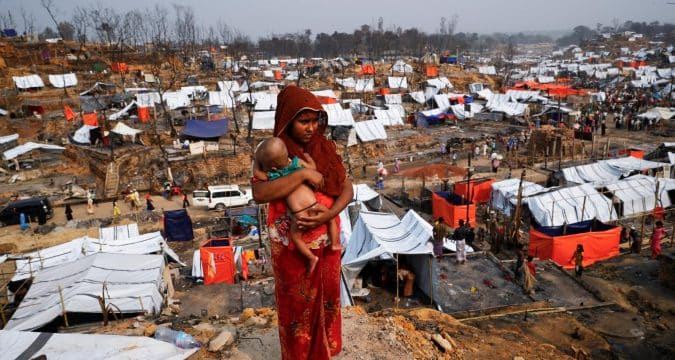
(UCAN): On July 22, The International Court of Justice [ICJ] dismissed preliminary objections raised by Myanmar’s military junta in the Rohingya genocide case. The main judicial body of the United Nations held public hearings concerning the application of the Convention on the Prevention and Punishment of the Crime of Genocide at The Hague from February 21 to 28.
Myanmar’s delegation, which replaced deposed leader, Aung San Suu Kyi, who defended the case in December 2019, argued that the court has no jurisdiction over the case and must throw it out before it moves on to substantive hearings.
However, presiding judge, Joan Donoghue said, “All states that had signed the 1948 Genocide Convention could and must act to prevent genocide, and the court had jurisdiction in the case.”
The ruling paves the way for the landmark case to proceed at the UN’s top court where proceedings could take years.
The case was brought by Gambia, which accused Myanmar of breaching the Genocide Convention.
The complaint is one of the first attempts to use the international justice system to help the estimated 740,000 Rohingya refugees who fled Myanmar following the military crackdown in Rakhine state in 2017.
Rights groups welcomed the ICJ ruling as another step closer to justice for Rohingya Muslims from Myanmar.
“The ICJ decision opens the door toward an overdue reckoning with the Myanmar military’s murderous campaign against the Rohingya population,” Elaine Pearson, acting Asia director at Human Rights Watch, said.
“By holding the military to account for its atrocities against the Rohingya, the world court could provide the impetus for greater international action towards justice for all victims of the Myanmar security forces’ crimes,” Pearson said.
The Burmese Rohingya Organisation UK (BROUK) also welcomed the move and called on the UK to join the case as both Canada and the Netherlands had formally declared their intention to intervene in September 2020.
“This decision is a great moment for justice for the Rohingya, and for all people of Burma. This ruling shows that there is a possibility to challenge the military’s impunity,” Tun Khin, president of the BROUK, said, referring to Myanmar by its old name.
In January 2020, the ICJ ordered Myanmar to carry out emergency provision measures and to respect the requirements of the 1948 Genocide Convention.
The court found there was prima facie evidence of breaches of the convention and ruled that the estimated 600,000 Rohingya remaining in Myanmar were “extremely vulnerable” to violence at the hands of the military.
A UN fact-finding mission reported that “genocidal acts” carried out in Rakhine by the military in 2017 resulted in more than 740,000 Rohingya fleeing to Bangladesh.
International pressure continues to mount on the military leaders, including coup leader Min Aung Hlaing, to be tried at the ICC or in an Argentine court [under the principle of universal jurisdiction] over rights abuses against Rohingya and other ethnic minorities in the country.








